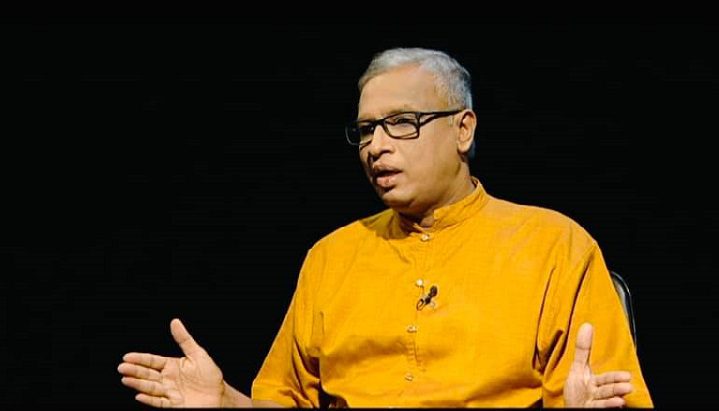General
Sri Lanka president pledges full implementation of 13th amendment; TNA sceptical


ECONOMYNEXT – Sri Lanka President Ranil Wickremesinghe has pledged a full implementation of the 13th amendment to the constitution as a solution to the country’s decades-long ethnic issue, though the opposition Tamil National Alliance (TNA) is spectical.
TNA parliamentarian M A Sumanthiran told EconomyNext on Monday January 16 that successive governments have made the same promise for 35 years, to no avail.
“Nobody takes it with any seriousness because it has been constantly promised. It’s a question of implementing it. The president with his executive powers can do it,” he said.
President Wickremesinghe told a gathering at the National Thai Pongal Festival in Jaffna on Sunday that a Social Justice Commission will be established to “build a country where everyone can live in harmony, by solving the problems of the people belonging to all sections of the population.”
In his speech, Wickremesinghe assured the audience that the ever elusive full implementation of the amendment will be finally realised.
Foreign Minister Ali Sabry also told an Indian news network in November that Sri Lanka is keen on implementing the amendment.
The 13th amendment to Sri Lanka’s constitution emerged from the controversial Indo-Lanka Accord of 1987 as a purported solution to the worsening ethnic conflict, four years after war broke out. Provincial councils came in the wake of this amendment, though land and police powers have yet to be devolved to the provinces as originally envisioned. Both Sinhalese and Tamil nationalists have historically opposed the amendment, the former claiming it devolved too much, the latter complaining it didn’t devolve enough.
President Wickremesinghe in November 2022 expressed his intention to find a final solution to the ethnic issue by February 04 this year when Sri Lanka celebrates the 75th anniversary of its independence from the British.
This deadline is now appearing increasingly unrealistic, with talks between the government and the TNA being less than successful.
“Talks have not been successful. In fact, there is disappointment because several things had been promised to be finalised by January, but hardly anything has been done,” said Sumanthiran.
As recently as Sunday January 15, the MP claimed, the government had made repeated assurances of releasing prisoners and military-occupied land, but there is still no progress on this front.
“There is no delivery on the ground yet.”
Asked if the TNA would welcome a fully implemented 13th amendment, the Jaffna district legislator said any provision that’s already in the constitution must be implemented.
“The law of the country must prevail,” he said.
It will not be the final solution being sought by the TNA, however.
“What we’re talking about is meaningful power sharing arrangements. If you can’t even implement what is already in the constitution, then what hope is there?”
Sumanthiran said the president has had many opportunities to resolve the issue.
“I don’t think he’ll be able to do it this time either, but we won’t stand in the way. We will help as much as possible,” he said.
Southern opposition parties have also pledged their support for a meaningful final solution, the MP claimed.
However, the position of Sri Lanka’s main opposition the Samagi Jana Balawegaya (SJB) and the leftist Janatha Vimukthi Peramuna (JVP)-led National People’s Alliance (NPA) have yet to make their positions clear. Meanwhile, critics of the TNA argue that the alliance does not speak for all Tamil voters and that there are diverse views within the Tamil political establishment vis-à-vis a solution to grievances of the community.
Asked what the proposed final solution will look like from the TNA’s perspective, Sumanthiran reiterated that it will involve a “meaningful power sharing arrangement.”
“There have been certain blockages in implementing power sharing arrangements. Those must be removed,” he said, referring to existing mechanisms as enabled by the constitution.
The TNA has on previous occasions touted federalism as a possible solution to the ethnic issue, and according to Sumanthiran, the alliance is still committed to it.
“Our proposal is that it must be a federal constitution. There is no question about that. We may not insist on the word federal being used, but certainly it must have the features of a federal constitution,” he said.
Federalism has been a highly controversial and politically inflammable idea in Sri Lanka over the years, with many nationalist or even some moderate parties in the south vehemently opposing the very suggestion of it. It is unclear whether this stance has softened over the 13 years since the end of the war, but to date no Sinhalese-dominated party – the SJB and JVP included – has come out in support for it.
However, Sumanthiran is hopeful that other opposition parties will be open to a lasting solution that is in line with provisions of the constitution.
“They’ve all agreed to full implementation of the provisions of the constitution,” he said.
If the southern parties change their mind, they will have gone back on their word, he added.
Though the TNA is far from optimistic of the success of the ongoing talks, Sumanthiran said the alliance will continue to engage.
“We’re going through the process, so as not to be blamed for the breakdown in talks,” he said, adding the TNA is awaiting a report that’s due Tuesday January 17. (Colombo/Jan16/2023)








